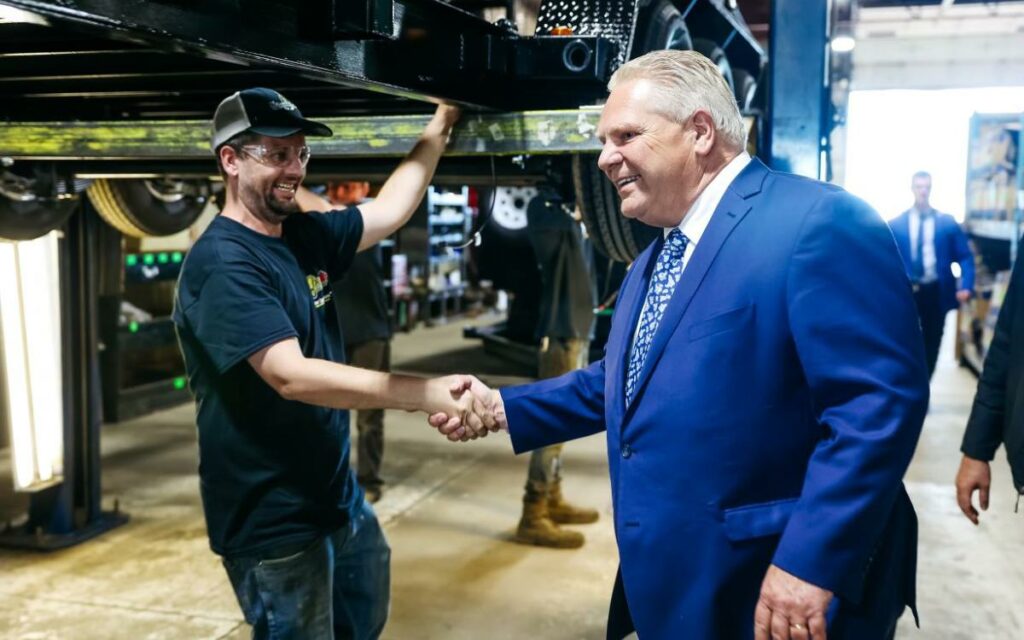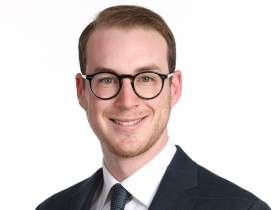
Provincial government expected to bring in over $200 billion in tax revenue for 2023. According to the FAO, Ontario is positioned to run a surplus of $3 billion this year, $7.4 billion next year and $10 billion the year after that. Photo credit: Twitter/Doug Ford
Despite increasing government spending rapidly, the Ford government has stumbled into a rosy financial situation with surpluses projected as far as the eye can see.
Let’s get one thing out the way: Ontario is in surplus territory because of a massive tax revenue windfall, not because of any prudent budgeting at Queen’s Park.
The only reason the Ford government is poised to run a surplus this year is because government revenue is through the roof. In 2018, during the Wynne government’s final year in office, the provincial taxman brought in $153 billion. This year, the government expects to bring in $204 billion. That’s a $51 billion increase in tax revenue in just five years.
Even the three blind mice should be able to find a way to balance the books with that kind of a tax windfall.
Ontario’s Financial Accountability Office, the province’s independent budget watchdog, recently released a report showing just how positive Ontario’s budgetary outlook is. According to the FAO, Ontario is positioned to run a surplus of $3 billion this year, $7.4 billion next year and $10 billion the year after that.
The FAO says over the next four years, Ontario is now positioned to run a cumulative surplus of $22.6 billion.
After the report was released, opposition parties howled in protest. NDP finance critic Catherine Fife called the projected surplus “outrageously irresponsible.”
Fife couldn’t be more wrong. What’s outrageously irresponsible is that Ontario is just a hair shy of $500 billion in debt with no real plan to pay it back.
This year, the Ford government anticipates spending $14.1 billion on interest charges on the province’s debt. That’s money that can’t go to tax cuts, funding hospitals or fixing potholes. That’s nearly $1.2 billion a month going to bondholders on Bay Street.
Throwing away enough money to build 14 new hospitals over the next 12 months is the very definition of outrageously irresponsible.
While the Ford government may have stumbled into a rosy financial situation, it’s now up to those very same policymakers to make smart choices about how to allocate this extra dough.
First, Ford should be cautious. Circumstances can change. Growth can slow. The government should ensure it has enough buffer room to maintain a balanced budget before thinking about directing any of that money anywhere else.
The second thing Ford should do is pay down the debt. A lower debt load means spending less on debt interest charges and having more room to spend taxpayer dollars on real priorities. Ford is likely to have requests from every corner of the province to increase spending because the books are in good shape. Ford should pre-emptively announce plans to allocate at least half of all surplus funds to lowering the province’s debt load.
Third, Ford should deliver tax relief. All of this extra tax revenue is coming from somewhere: taxpayers’ wallets. Government revenue doesn’t just fall out of the sky. Rather, it comes off of the paycheques of hardworking Ontarians.
One immediate idea would be to make the government’s temporary gas tax cut permanent. The 6.4 cent per litre tax break has left more than $1 billion in taxpayers’ wallets over the past 12 months alone. The typical driver is saving over four dollars per fill up.
Sales tax relief should also be put on the table. The average Ontario family pays $3,270 a year in sales tax. Sales tax revenue has increased by $8.5 billion over the past three years, in large part due to inflation. It’s time to send some of that money back to where it came from.
The bottom line is that it’s time for the Ford government to be smart. Through sheer luck, the government is facing surpluses as far as the eye can see. Ford should use that money to pay down debt, lower the tax burden and ensure deficit spending is a thing of the past.

Jay Goldberg is the Ontario Director at the Canadian Taxpayers Federation. He previously served as a policy fellow at the Munk School of Public Policy and Global Affairs. Jay holds a Ph.D. in Political Science from the University of Toronto.






